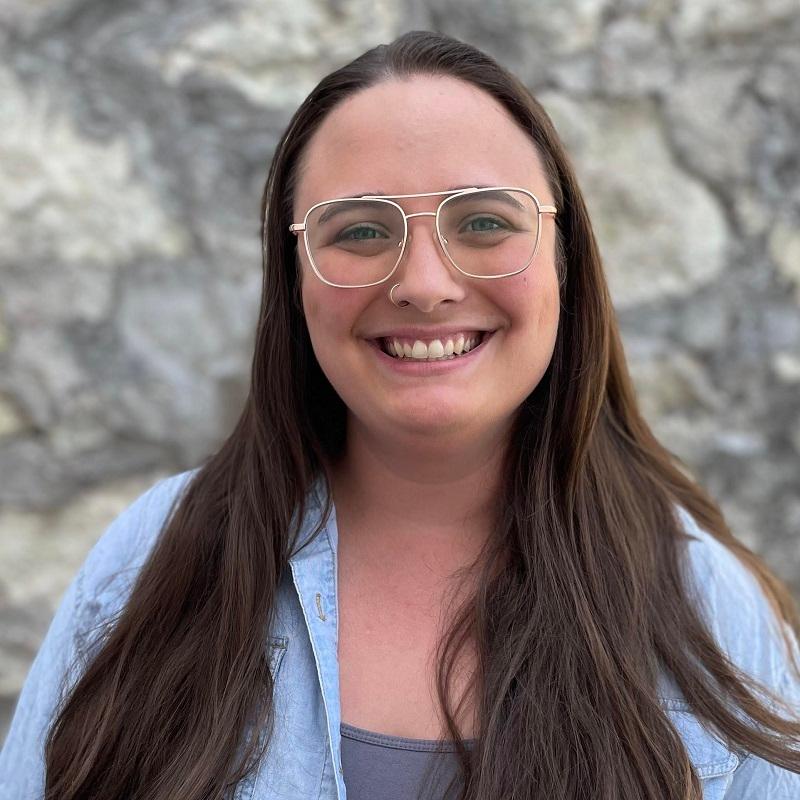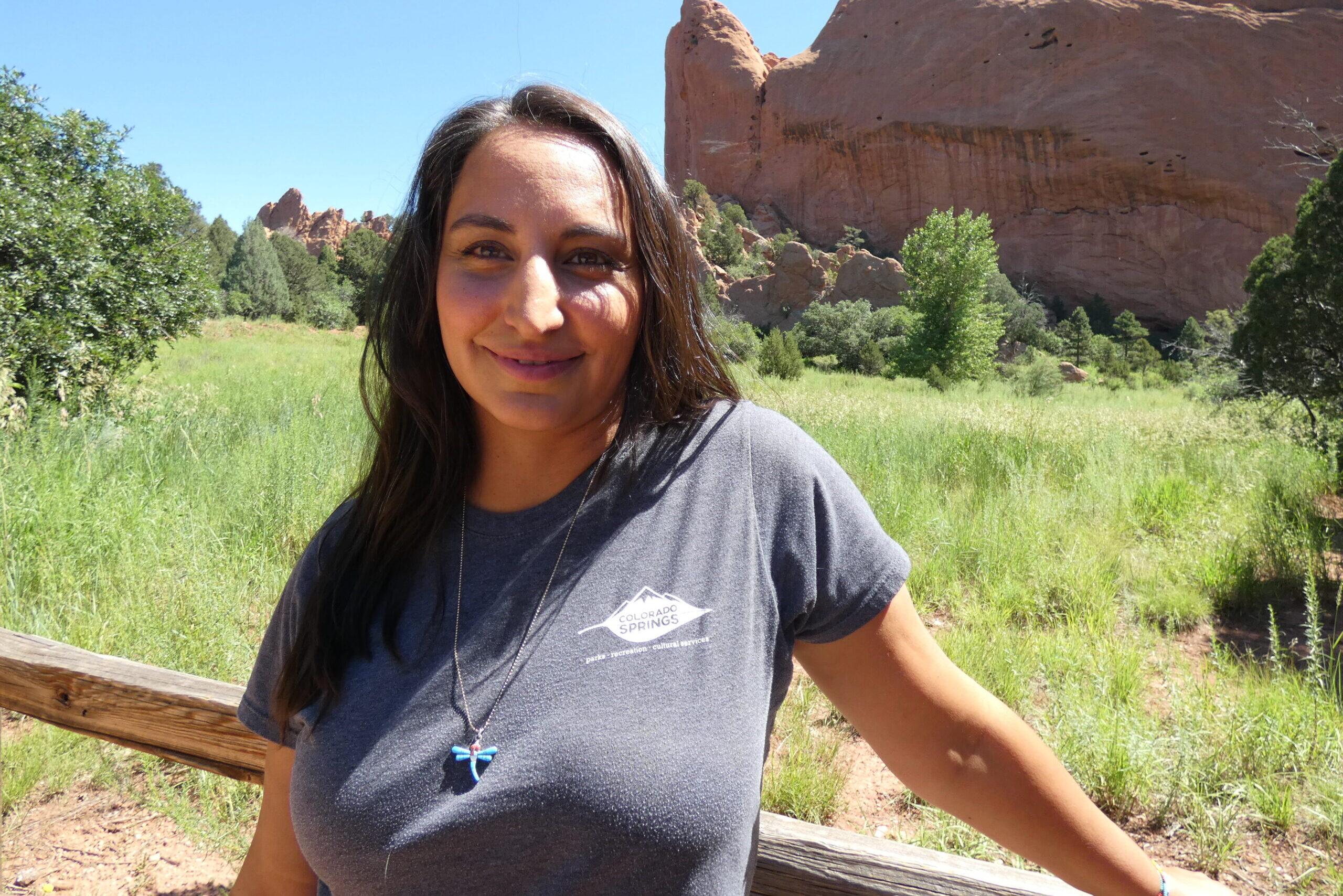
The most popular park in Colorado Springs has a new manager.
Anna Cordova has been serving as interim manager of Garden of the Gods since January, but in July she was made the permanent manager. This will be the second title that Cordova holds, after being the first and only official archeologist employed by the city of Colorado Springs.
Born and raised in Colorado Springs, Cordova said her upbringing and her Indigenous background have shaped her career along the way.
“So I went into archeology, even as an 18-year-old student, with the idea that Indigenous voices needed to be heard more and that it was a very colonial kind of practice,” she said.
Cordova has worked with the park for seven years as the city’s archeologist and says one of her favorite spots is closer to the center of the garden.
“Probably one of my favorite trails is Ridge Trail," Cordova said. "It's not really in the central part of the park, it's kind of south of the main formations. But when you walk up to the stunning view of the mountains, it's just breathtaking.”
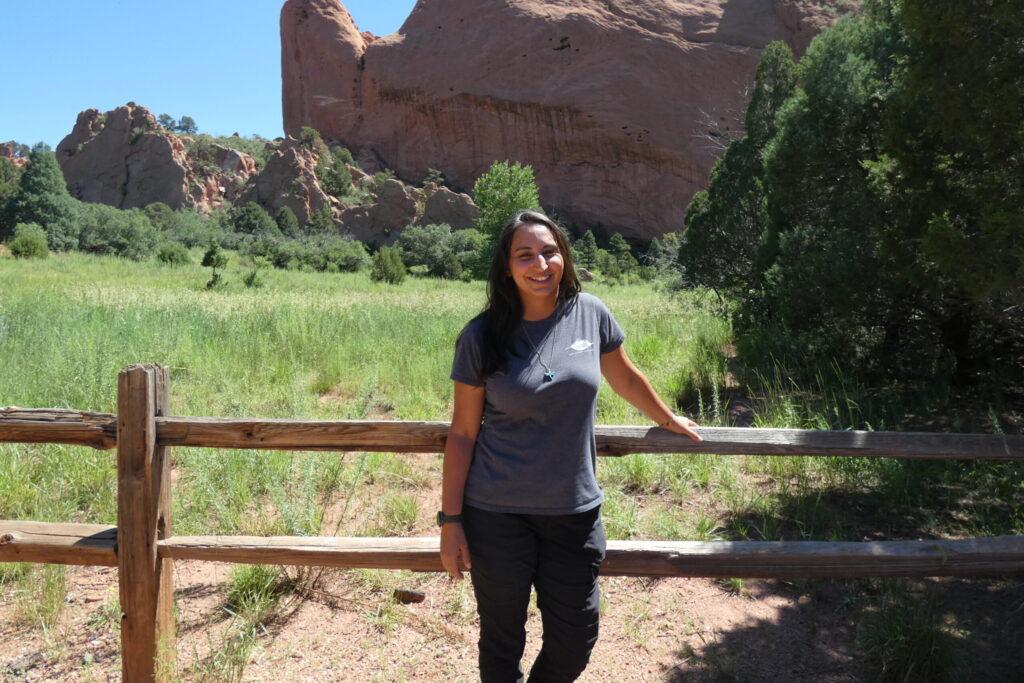
On a recent hot summer afternoon, Cordova laughed as she noted the view at Garden of the Gods never gets old.
“We have these giant red sandstone fins,” Cordova said. “We have some that are white or gray that are made of limestone that are just these soaring fins up into the air. And then you’ve got this backdrop of Pikes Peak and the Rocky Mountains behind it. I think that’s what makes it so unique.”
Cordova spoke with KRCC host Jess Hazel at the park on a particularly busy day in July to talk about how she plans to approach the job of managing the park’s 4.5 million annual visitors.
This conversation has been edited for time and clarity.
Jess Hazel: During your time as the city's archaeologist, the big discovery was some trash from Colorado Springs Founder General William [Jackson] Palmer, and that was right here in Garden of the Gods. Can you tell me a little bit more about that discovery and its significance?
Anna Cordova: We found all of General Palmer's trash in the northeast corner of Garden of the Gods. We excavated only a small percentage of the site and we still got nearly 70,000 artifacts out of it. So it's a cool site.
Hazel: 70,000 artifacts. That is so cool. It seems kind of odd that there would be that much trash in an area like this. Was there a different kind of mindset about nature and these kinds of sites during his time as compared to us?
Cordova: Yeah, I think our trash is different now too. A lot of the stuff that we're putting into the soil is leaching awful chemicals and it's not going to go away. Obviously, General Palmer had things that didn't go away either. Lots of glass and ceramics and bone and things like that. But at the time the Gods Park was still fairly far away from Colorado Springs. And if you have no motorized vehicles or even just basic cars, you're not going to be hauling it out. And so the thing was to kind of dump it near a creek a lot of times or people were definitely burning their trash. And we see that activity on the Palmer site as well, where they were burning trash at different times. He wasn't dumping the trash in the canyon right next to his fancy castle, so he was putting it out near the creek and probably hoping that some of it would wash away. And I'm sure some of it did. But [he also covered] it over at some points and it was near his alfalfa field. So yeah, I think there was a different mindset, but it was also, ‘What else were you going to do with it?’
"I think it's very empowering to be able to interpret your own history and not have other people do it for you."
Anna Cordova, Garden of the Gods manager
Hazel: How does your past work as an archeologist inform your work here as manager of the park?
Cordova: Well, I think that archeology is all about preservation and stewardship, and that's what Garden of the Gods is about. So how do we preserve this for future generations? What kind of stakeholders do we need to involve in order to manage the park? So I've definitely relied heavily before on those Indigenous voices. The original stewards of the land know how to take care of it. It's not a far leap for me, going from archeology and making sure that we get different stakeholder voices and opinions in order to best preserve and interpret these properties and preserve it for future generations as well.
Hazel: You were born and raised in Colorado Springs, graduated from UCCS and now you're the manager of the city's most popular, probably most well-known park. Do you think [staying in Colorado Springs] shaped your career in any way?
Cordova: Oh, definitely. I have an Indigenous background. My dad's from the San Luis Valley area, Northern New Mexico. So there's a few different ties there. But it's definitely shaped the way that I think about this place and especially archeology. So I went into archeology, even as an 18-year-old student, with the idea that Indigenous voices needed to be heard more and that it was a very colonial kind of practice. To kind of bridge that gap a little bit.
As a young student, I remember there weren't a whole lot of Indigenous voices represented in archeology. At least not published and things like that. I think it's very empowering too to be able to interpret your own history and not have other people do it for you. Archaeology also lends to how we manage and steward places now. That tribal consultation is not just about archaeology, it's about how we go forward into the future and how we do things in the present. So it's all connected and all extremely important to me.
For example, we have this program. It's a nationwide program, but the city of Colorado Springs’ Parks and Rec participates in it, it's called ‘Leave No Trace.’ And I always joke with people that that's not a new concept like, ‘Hey, you're thinking indigenously now,’ so that's good. As a manager, I often say that Indigenous people, I wouldn't say all, but a lot of different Indigenous cultures, talk about thinking ahead seven generations. When it comes to places like this, I think that's what we should all be doing. Indigenous worldviews and ways of thinking are a big part of how we should be managing places and stewarding them.
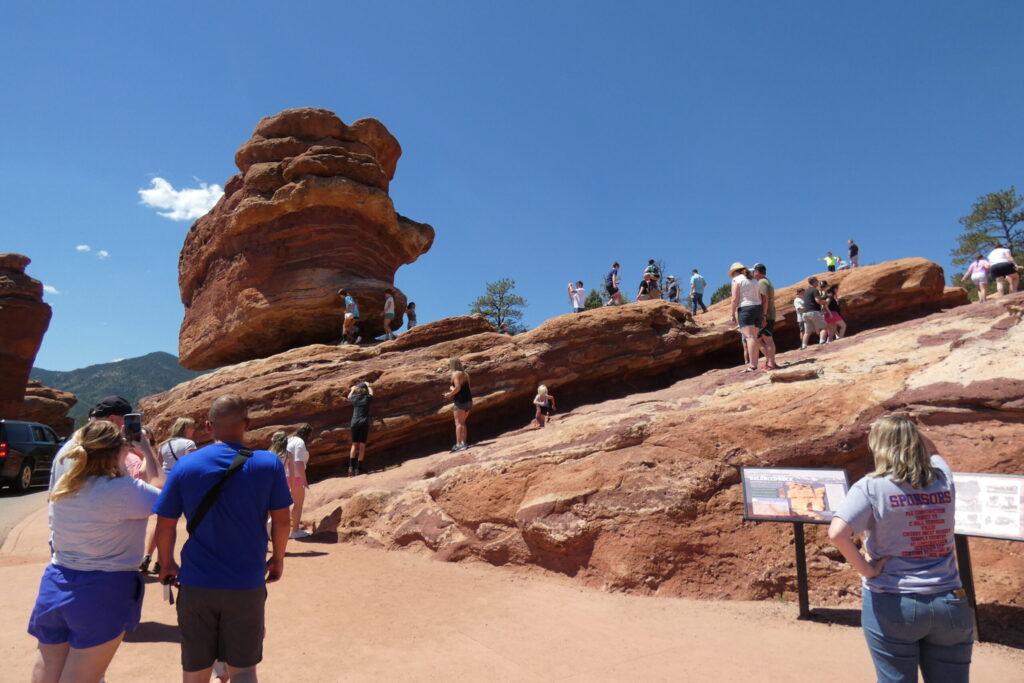
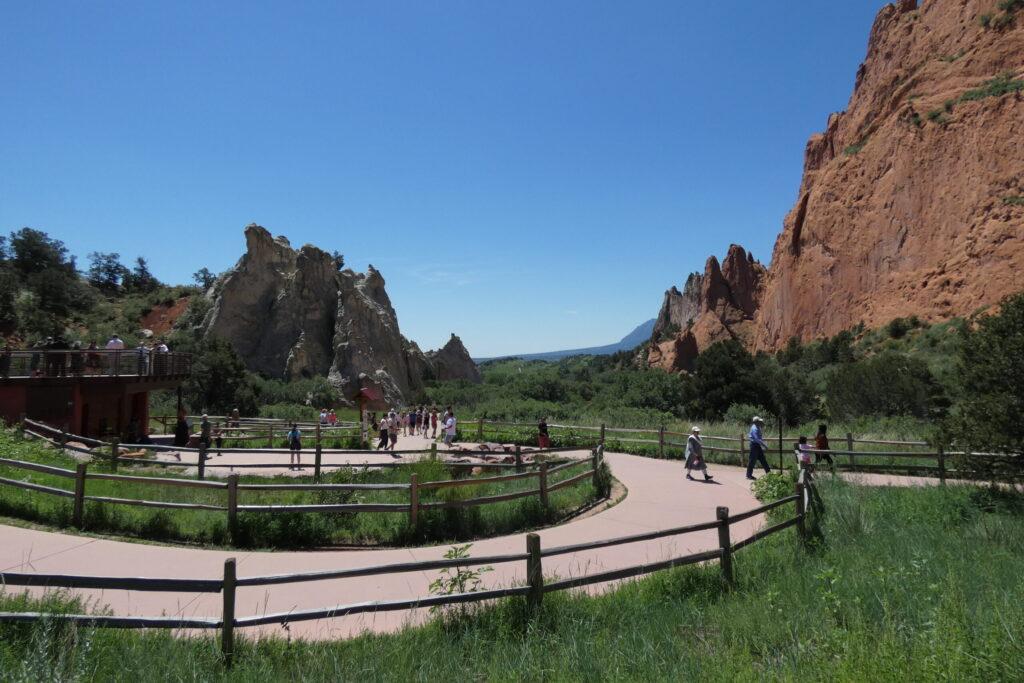
Hazel: Can you tell me a little bit more about what stewardship means to you and what that looks like?
Cordova: Yeah, it's about your connection to places and how you're thinking about them and how you're going to care for them and shape them for future generations. I always joke that Garden of the Gods Park does not need a manager. The park itself doesn't need a manager. The people that come to the park do. And so just trying to figure out how to balance the resources with visitation and making sure that people can come here and enjoy it and fall in love with it just as much as so many millions of people have already done and how citizens of Colorado Springs have already done.
Hazel: So what's on the top of your list when it comes to managing the park?
Cordova: There will always be different projects happening in the park. I've been here seven years and as just the archeologist I've seen so many different projects happening. When a place is so used there are things that you need to do to help to mitigate [that use] and help provide resources for people as well. For example, one of the most recent projects was building the new bathroom in the main parking lot. But for me it's going to be a learning curve too. I definitely want to look into more resources. As far as management and what my priorities are, it's going to be a learning experience to come up with ideas for how we manage millions of visitors every year in this park that has limited parking and a fairly small size park.
So how do we do that? And that's a big question.
Editor's Note: This post was updated to clarify Anna Cordova's job title with the city of Colorado Springs. (7/31/23)
